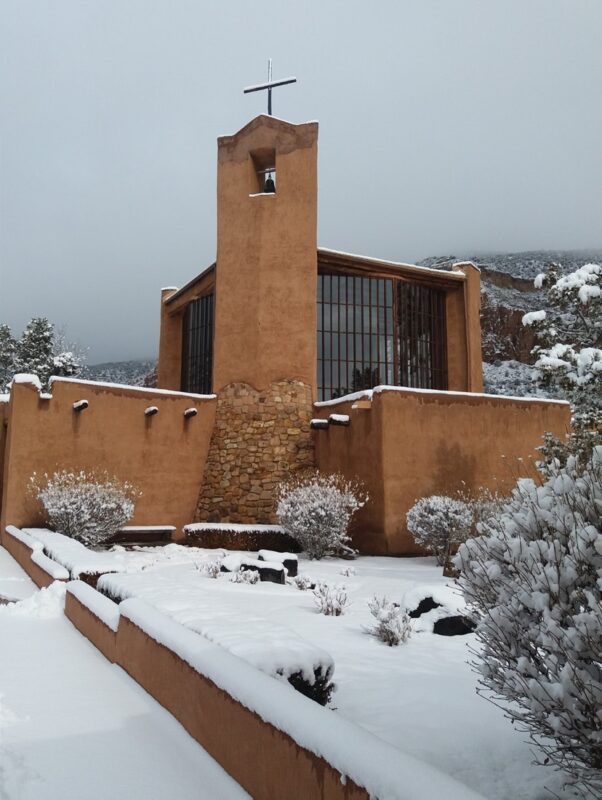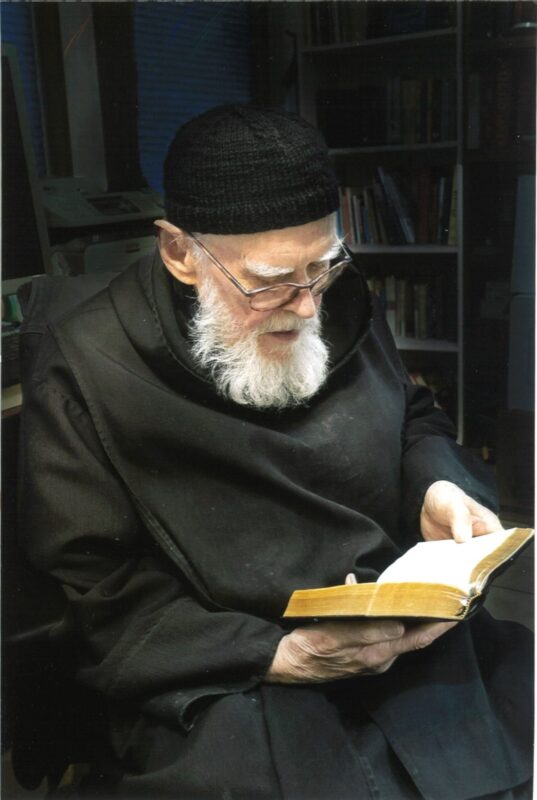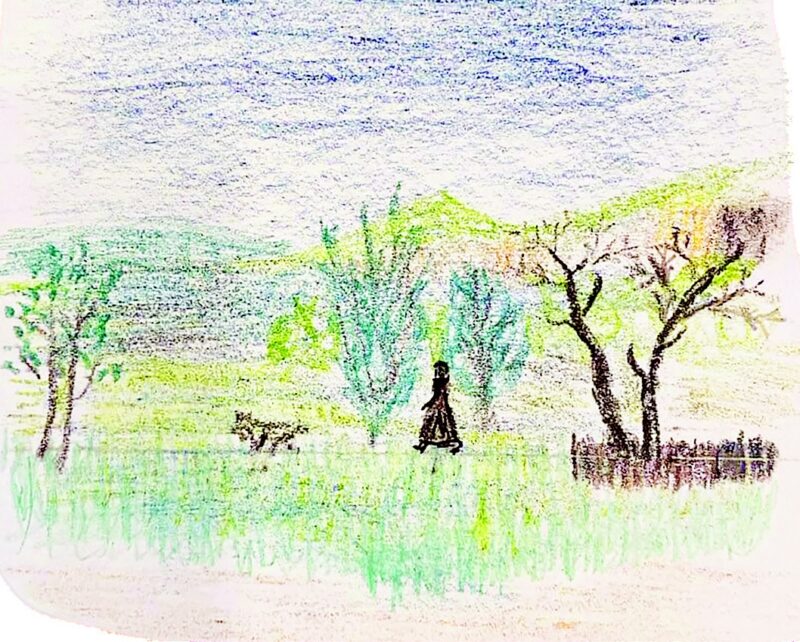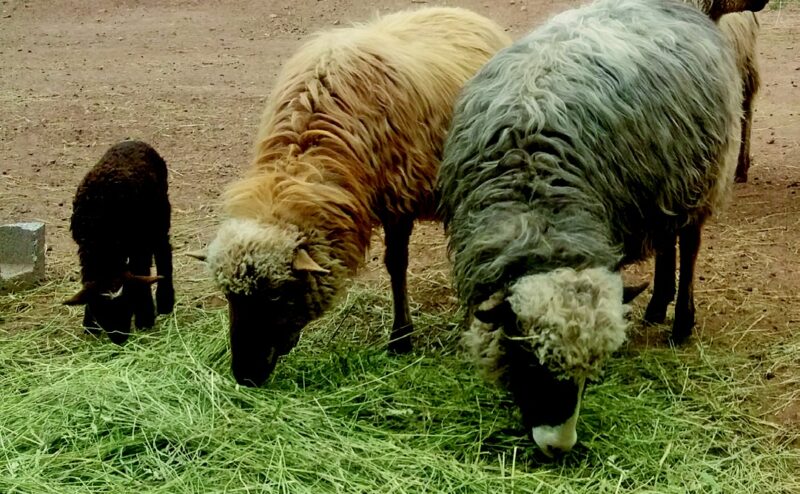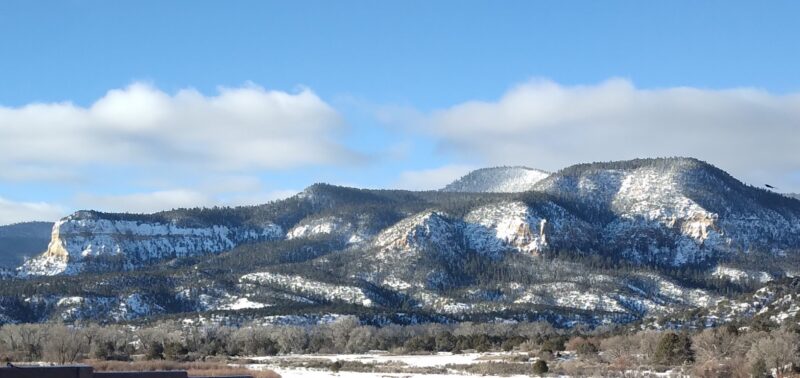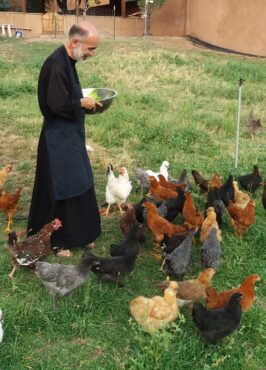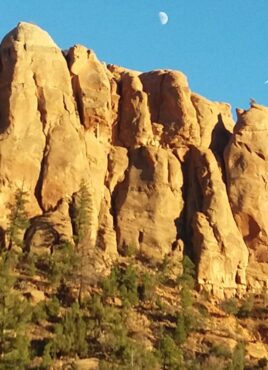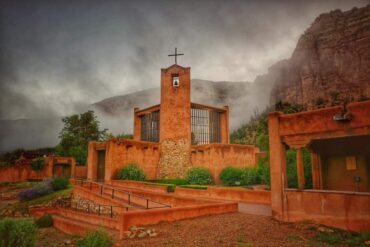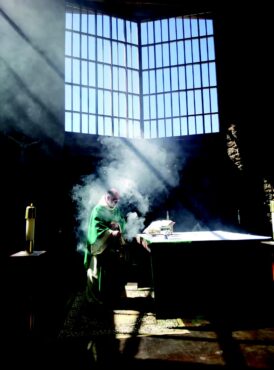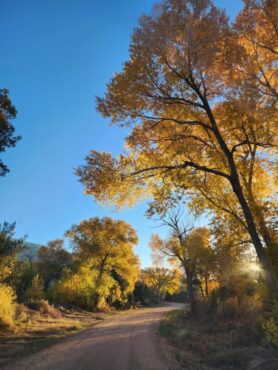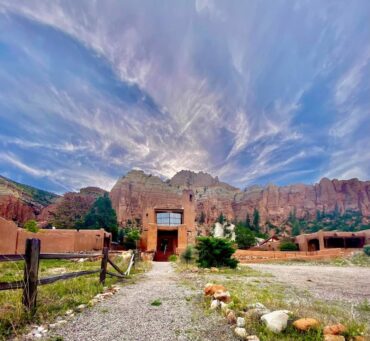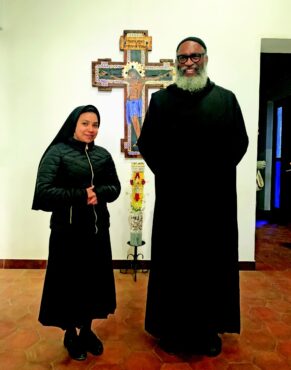Shepard
The word “shepherd” is both a noun, as in a person who tends sheep, as well as a verb, as in the action itself of tending sheep. In other words, every shepherd has to shepherd his flock!
Sacred Scripture is replete with references to shepherds and sheep, though not as agricultural imagery for its own sake, but used to speak about the reality of leaders and followers, most especially considering God as a shepherd, and human beings the flock that God tends.
Perhaps the most famous reference to God as shepherd is found in the Old Testament Book of Psalms, the twenty-second psalm, which begins with the words: “The Lord is my shepherd; there is nothing I shall want.” What an apt and fitting description of God for those who believe in and place all their trust in God.
That doesn’t mean, of course, that life is a piece of cake, for the same psalm also says: “If I should walk in the valley of darkness, no evil would I fear.” Why not? Because God is ever-present to offer “goodness and kindness” to all who face life’s inevitable challenges, setbacks and tragedies.
The theme of this year’s Christmas Newsletter is “Shepherd,” both in its reference to a person– specifically to God–and in the concept of shepherding a flock, such as an abbot, parent or teacher is expected to do. And for the monastic community, children of parents or students of teachers, there is a special vocation for those who are being led by shepherds, hopefully along the right path.
In the Christmas season we also reflect on specific shepherds cited in the Gospels, where the good news of the birth of Christ is announced by angels to shepherds tend- ing their flocks outside of the little town of Bethlehem, the place of Jesus’ birth. When they hear the news, the shepherds made haste to go and see the one who will in time call himself the Good Shepherd. We can presume that not all the shepherds went to see Jesus, for some one or more of them must have stayed behind to keep watch over the sheep momentarily abandoned by the shepherds going to Bethlehem.
I’ve sometimes wondered if the stay-behind -shepherds were any less joyful or privileged than the ones who ran to see the infant Jesus. Presumably not, and consoling words from Saint Paul for them and us are these: “Al- though you have not seen him, you love him; and even though you do not see him now, you believe in him and rejoice with an indescribable and glorious joy, for you are receiving the outcome of your faith, the salvation of your souls” (1 Peter 1.8).
And who knows, maybe in fact the stay-behind-shepherds got to go to the stable once the first group of shepherds returned to the sheepfold.
Saint Benedict expects the abbot of the monastery to be a good shepherd of the flock and to shepherd well those in his care. It is not an easy task, speaking from five years of experience at the job thus far, but it is not an impossible task, and greatly helped by willing brothers and a solid structure of monastic life. The grace of God should always be sought by shepherds, and willingly accepted.
The prayers of the brethren and of many others is always greatly appreciated as well.
May the coming of Christ, recounted at Christmas, received in Holy Communion and awaited at our death and with the return of the Good Shepherd at the end of time, console us as we continue on our pilgrim way to the House of the Lord.
A blessed, joyful and Merry Christmas to all!
Abbot Christian Leisy, OSB
PROVINCIAL CHAPTER
From October 9th to 13th this year, Abbot Christian and seventeen other abbots, Priors and delegates of the monasteries of the English Province of the Subiaco Cassinese Congregation, to which Christ in the Desert belongs, met at the Benedictine Abbey of Saint Scholastica, Subiaco, Italy, some forty-five miles from Rome.
The weather couldn’t have been better for the “Provincial Chapter,” as it is officially called. In addition, the hospitality of Abbot Mauro and the monks and lay staff at Subiaco was superb.
It was at Subiaco that Saint Benedict began his monastic life in a cave, around the year 500 AD. Today, Subiaco is one of the most beautiful shrines in Europe and the home to some twenty-five monks.
It was also at Subiaco that Saint Benedict inaugurated his first full-fledged monastery and several satellite communities before eventually moving to Montecassino, where he died in 547 AD.
The recent Provincial Chapter of the English Province was an opportunity for fraternal exchange and sharing news of the fifteen monasteries represented at the gathering, as well as preparing for the next General Chapter of the entire Subiaco Cassinese Congregation, which will occur in Spain during part of the month September, 2024.
Following the General Chapter of our Congregation next year, which will be at the Benedictine Abbey of Montserrat in Spain, there will be a Congress of all the Benedictine abbots of the world, taking place in Rome.
The “many meetings” described above normally happen only every four years. The pandemic threw the usual scheduling off, but we Benedictines should be “back on track” for scheduled gatherings in the Fall of 2024. ✠
Father Bernard Cranor, OSB
1931 – 2023
IN LOVING MEMORY
On September 11, 2023, our dear confrere, Father Bernard Cranor, died peacefully at the Monastery. He was ninety-two years old and lived a very long and fruitful life, first for a short time as a Trappist monk in Utah, then as a Dominican friar for many years, then as a monk of Christ in the Desert the last several decades of his life.
Father Bernard was from California, born on July 30th, 1931. He professed vows as a Dominican friar on April 29th, 1953 and ordained a priest on June 9th, 1962. Subsequently he obtained Doctorate in Liturgy in Paris.
In our community, he was one of our cooks, librarian for many years, teacher in our formation program, creator of photo cards and postcards. He kept busy until the last year or so of his life.
We commend Father Bernard and all the faithful departed to your prayers. May the angels lead Father Bernard into Paradise! ✠
MONASTERY DEDICATION
On September 28, 1968, fifty-five years ago, our Monastery church, dedicated to Saint John the Baptist, was formally blessed as the place of worship for the monks of Christ in the Desert and its guests.
We would like to share a few of the comments made on this day in the homily by Abbot Christian Leisy, OSB.
“Since that day thousands of Masses, recitation of the Divine Office, private prayers as well as Professions of temporary and solemn vows, ordinations, and funerals of monks and many other events have occurred here and continue to be celebrated in this holy place.”
It is wonderful when we can use a specific place – a church, a chapel, a prayer room, or prayer corner – for rendering to God our regular service.
Today we should also recount and pray for the eternal repose of the souls of those responsible for getting this church built, especially Fr. Aelred Wall, our first Prior, George Nakashima, the architect of the building and the many benefactors.
This is a reminder that our places of communal worship are important, and a reminder that all human beings are a sacred reality, a place where God dwells, and nourishes us with the Word and the Eucharist which we are celebrating here, now and every day.
“…so that in all things God may be glorified.”
MONK’S CORNER
Father Thomas-Benedict
What is your name?
Father Thomas-Benedict.
How long have you been a monk at MCD?
I have been a monk at the monastery since 2000.
What were some of your challenges being a monk at MCD during your time here?
Always community. Either the pain or the glory it remains a challenge that I happily accept.
What changes have you witnessed during your time here at MCD?
I was first introduced to the monastery in 1978 when there were Brothers Philip and Christian and other monks. There were wood-burning stoves. The liturgy was different, too.
Who is your favorite saint, and why?
Benedicta of the Cross, Edith Stein. I am moved that she could have saved herself through acceptance into a convent in Switzerland, but her sister was refused admittance to the same convent. Therefore, she stayed with her sister and was seized by the Gestapo and shipped to the concentration camp at Auschwitz. Survivors of the death camp testified that she helped all other sufferers with great compassion. She was sent to the gas chamber, where she died with her sister.
SHEPHERDS
Short Fiction
By Brother Chrysostom
Aziel and Bered could see Emmett in the distance herding his small flock of sheep down a gulley then upward toward a hill summit. The two decided,
as dusk changed to darkness, to make camp on an opposite hill within eyesight of Emmett’s apparent resting spot for the night. The heat of the rocks from the day’s hot sun provided comfort to the shepherds and sheep. The desert air began to cool and the wind lifted sand higher and faster through the twilight sky. A large stone, like a misshapen loaf of bread, and a smaller stone at a sharp angle touching it, served as a wall of shelter. The small fire they started with twigs and brush from nearby bushes and dead trees created large black silhouettes of themselves on the surface of the bread stone. Aziel’s head wrap and flowing cloak cast an unrecognizable shadow on the smooth rock that startled Bered.
“You look like some wild beast,” Bered said.
“Leave it to you to be scared of shadows,” Aziel replied.
After he attended the fire, he began to unwrap the parcel of dates, figs, olives, bread, and cheese that Talia, his wife, had packed for his journey.
“Olives! They are so hard to find. King Herod’s buyers are ravaging all the nearby markets. Does he ever tire of giving large feasts?”
“My Talia knows of olive trees not even King Herod knows about.”
Aziel picked up a fat olive from the parcel and placed it in his mouth. He chewed and spat the pit into the fire.
“And you smell bad,” Bered added. He pulled his camel hair coat and simple head cloth tighter around his body for warmth.
“A man can’t smell himself,” Aziel said.
“Emmett fell behind. He’s different. He seems worried,” Bered said.
“Can you blame him? His wife is with child. He knows the pain of Job.”
“Your words carry meaning I do not understand,” Bered said.
“Father Abraham, help me,” Aziel said.
Both men were silent. The sheep were gathering closer together below them. An occasional kid would bleat. The crackling of the fire and the whistling wind between their two-rock domicile prevented total silence from encompassing them. Emmett on his lower hill cried out to Aziel and Bered and waved his arms. He was barely visible to them, even with the moon’s glow between lumbering clouds.
“You didn’t hear about Rehabiah?” Aziel asked. “No, who is she?”
“Emmett’s wife. They say she is barren. A Benjamite woman from north of Bethlehem.”
“Oh. What if she can’t bear children?”
“He could take another wife. He loves her, though. She is with her tribe in the north these last months. Emmett has not heard news of a baby. God be merciful.”
“Shalom Aleichem!” Emmett cries out. He was some distance away from their fire the men calculated, judging by the sound of his voice.
“Shalom!” Aziel shouted back.
“How will he know?” Bered asked. The pair spoke in hushed, confidential tones.
“He’s been asking the others. No one has any news.” “He’s so sorrowful. Can’t we head north and find out?” “Eloheynu, forgive him! You fool, how can we go north when we are headed east? Do you want
to overburden the sheep? The terrain is too rocky with little grazing. Emmett will have to be patient and long-suffering.”
“He will eventually know the truth.”
“Yes, but it will not be us who announces it.” “Then who?”
“The Almighty knows.”
They could hear Emmett’s heavy breathing and foot- steps on the loose stones leading to their encampment. They stopped talking. Aziel quickly wrapped up the food that he was eating. Bered did the same with
his food. Now was not the time to be hospitable and share. They both did not want this harbinger of bad tidings to linger in their midst for long. He had more than enough woe for both of them.
Emmett’s form emerged from the darkness, the light of the fire reflected the dirty white strips woven into his dark cloak and brown tunic. His beard was matted with sand. There was a deadness in his eyes. “Shalom, Emmett, why have you left your flock?” Aziel asked.
“Shalom, Aziel, I will return shortly to it. I come for news from up north. Have you traveled from Ekron or Jamuth?”
“No, we are from Hebron, heading close to Bethle- hem. We hope to reach Gilgal within a few days.”
“Oh, I see. Any news of my Rahabiah? A son?”
Bered drew circles in the sand before the fire. Aziel looked at the stars that had gotten brighter with each passing hour. He then looked at Bered and then back at Emmett.
“No word?” Emmett asked.
Aziel was silent. Emmett looked at Bered. Crumbs from the bread crust Bered was eating clung to his black beard. Bered continued to draw circles in the sand with his staff.
“No good tidings, yet” Aziel said. Bered looked at Aziel and inhaled deeply.
“I have lost all hope of good tidings. My wife is barren. I will not be blessed with a son.”
“Have faith, Emmett. May the Almighty be with you,” Aziel said.
The interview was stopped when the shepherds noticed Aziel and Bered’s flocks beginning to cluster. The sheeps’ heads could be seen through the gloom all pointing east. The sheep became still. The shep- herds heard no bleats, not even from the kids. A light in the distance grew in strength from behind the loaf stone. As they stood up and turned to look behind them and beyond the stone, the desert wind ceased.
All three shepherds gazed into the blinding light, shielding their eyes with their hands and cloaks.
“Is that singing?” Bered asked. His knees buckled. His body shook.
“Protect the sheep,” Aziel whispered. The sheep remained still and silent.
Aziel kneeled beside Bered. Emmett remained standing. Awash in this brilliant light of awe and peace.
His despair could not let fear into his heart. Now, love warded off his despair for his and his family’s future. He smiled at the legions descending upon them.
Emmett felt a gentle touch from the blinding glow. Some child, the Prince of Peace, the Everlasting Father, was born in Bethlehem. A multitude of swirling voices sang energetically that heaven and earth rejoiced because of this child. Emmett closed his glistening eyes. Behind his red glowing eyelids he had a vision of his beautiful Rahabiah…and his three-week-old son. ✠
SEASONS AT THE MONASTERY

